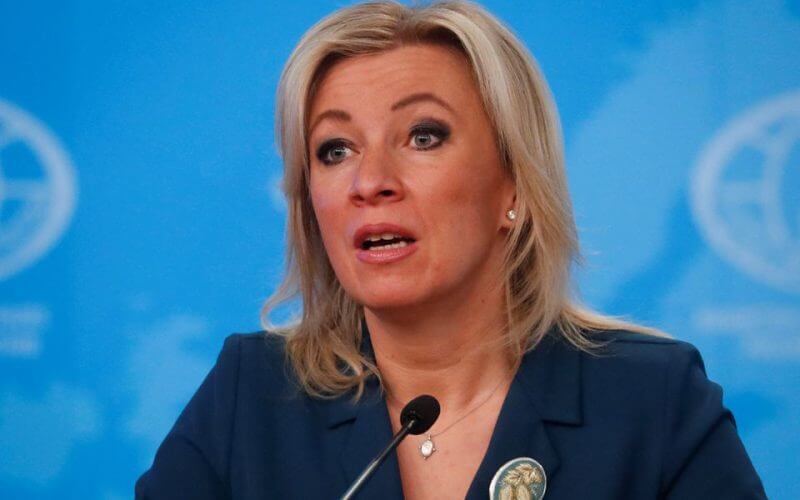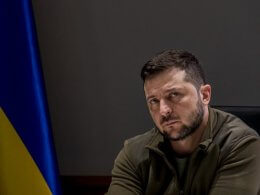Russian Ministry of Foreign Affairs spokeswoman Maria Zakharova indicated Thursday that YouTube had blocked some of her briefings and said for every press briefing that is taken down, an American journalist or news outlet will be sent out of Russia.
In a roundtable discussion regarding the role of information “in a standoff with the West,” as state media site TASS put it, Zakharova explained what the Russian government planned to do in response to bans on her briefings.
"I had a couple of briefings blocked. What we did - we simply went and said: ‘If you block a briefing once again, one reporter or one American media outlet will go home.’ That’s it. This is not along the lines of ‘do whatever you want.’ Another blocked briefing, and we will name a particular name or a particular media outlet that will return home,” she said.
"And taking into account that a lady with Polish citizenship is involved in all of this and considering Poland’s stance, perhaps, we won’t limit ourselves only to American [media],” Zakharova added, in a reference to Susan Wojcicki, the CEO of YouTube.
YouTube blocked DumaTV, the channel of the Russian parliament, in April, saying it violated YouTube’s Terms of Service when it downplayed the violence in Ukraine. After YouTube blocked one of the Foreign Ministry’s press briefings in April, Russian state media site RT News quoted Zakharova saying “If the Foreign Ministry’s channel on YouTube is turned off – someone from CNN will go home. And the BBC, too.”
But the BBC, along with some other foreign news outlets, had already made plans to completely suspend the work of its journalists inside Russia after the passage in early March of a criminal code amendment that prohibits the sharing of information about the war in Ukraine that doesn’t conform to the party line.
“The safety of our staff is paramount and we are not prepared to expose them to the risk of criminal prosecution simply for doing their jobs,” BBC Director-General Tim Davie explained at the time.
Russian parliament moved ahead with another law Tuesday which would prohibit the publishing of “illegal, dangerous information by the media and the broadcaster, including unreliable socially significant information,” and, like the March amendment, information that puts the Russian military in an unfavorable light.
The Wall Street Journal reported that the law would also allow the government to “shut down a foreign news outlet operating in Russia in retaliation for Russian media being closed abroad,” which would enable the actions that Zakharova has promised.










